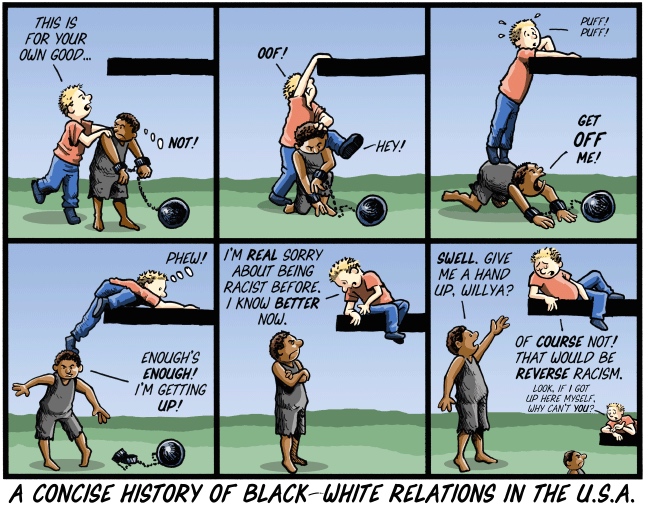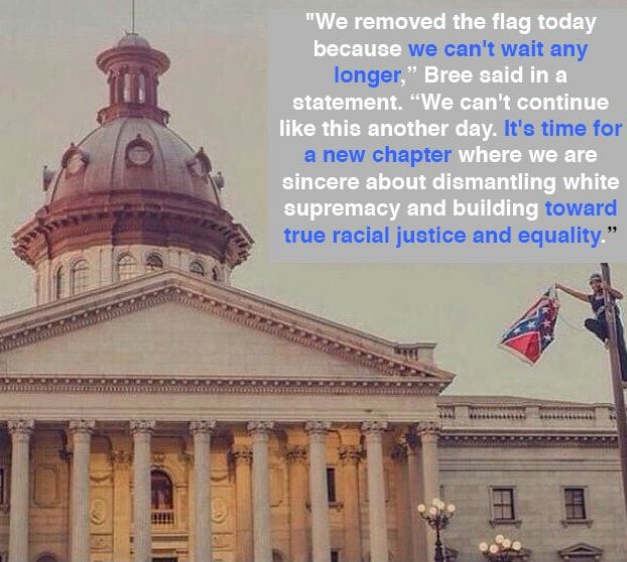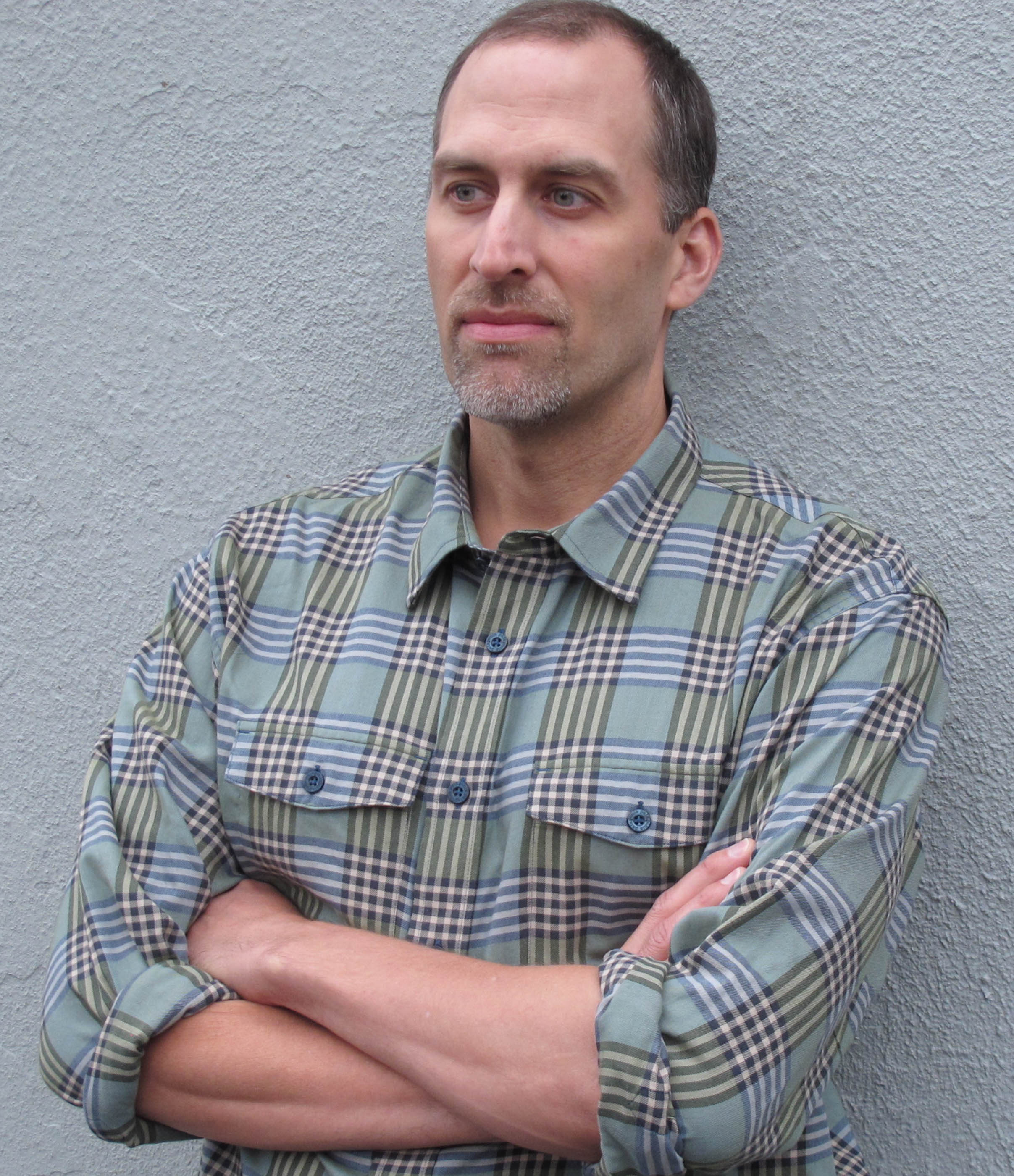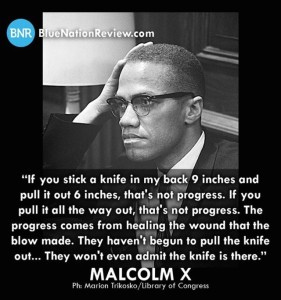 When teaching about race and racism, I invite participants to consider the following analogy: Think of racism as a gigantic societal-sized boot.
When teaching about race and racism, I invite participants to consider the following analogy: Think of racism as a gigantic societal-sized boot.
“Which groups do you think are fighting the hardest against this boot of racism?” I ask them. Invariably, participants of diverse races answer that those fighting hardest to avoid getting squashed by the boot are people of Color. (Keep in mind that I don’t ask this question on day one of our study of race. Rather, participants come to this conclusion after exploring the concept of White privilege and studying the history of race and racism in the United States through multiple sources and perspectives.)
“If that’s true,” I continue, “then who do you think is wearing the boot?” The participants’ answer (though it often only reluctantly hits the air): White people.
“If that’s true, then whose responsibility is it to stop the boot from squashing them? The people of Color already pushing upward and resisting the boot? Or the people wearing the boot–consciously or not–who contribute to a system that pushes downward?”
Everyone has a role in ending racism, but the analogy shows how little sense it makes for only those facing the heel-end of oppression to do all the work. It’s time for White America to take on a far bigger role in taking off the boot.
There are no doubt complexities that come with White Americans working for racial justice. White privilege can lead to a chronic case of undiagnosed entitlement, creating poor listeners, impatient speakers who talk over others, and people unaccustomed to taking orders. Nevertheless, the movement for racial justice needs more White Americans to get involved. And it’s our responsibility to help each other get involved–and get involved productively.
I compiled this list to help White Americans do so. One positive to emerge from these difficult times is the wealth of resources now available for White Americans. Never have I seen so many ideas, options, and concrete steps to take action against racism. And we are making progress: Looks Like White Americans Are Finally Starting to Come Around on Race and Policing. A few police officers are even being held accountable–finally–for their devastating decisions.
But so much work remains.
A few notes about this list:
- To keep this list from becoming overwhelmingly long, I prioritized recent sources–from Ferguson to Charleston–and organized them in reverse chronological order.
- Every resource listed is relatively short. Not one of these resources links to a book (except here, here, and here). In other words, there’s no excuse not to dig into them.
- Many links on the list focus on the recent killings of Black men, but, as the three articles below illustrate, institutionalized racism has a much longer reach (and that these lists are hardly comprehensive):
- It’s Incredibly Scary to Be a Transgender Woman of Color Right Now, published by Mother Jones on June 26, 2015
- Black Women Are Getting Killed by Police Too — So Why Aren’t More People Discussing It?, published by Mic on May 11, 2015
- The Police Are Killing One Group at a Staggering Rate, and Nobody Is Talking About It, highlighting the frequent killing of Native people by law enforcement that receives little to no media attention, published by Mic on February 5, 2015
- Finally, by “curriculum,” I do not mean a unit of study for classroom use (to be clear: this list is separate from my work in the classroom); rather, these resources, inspired by the #Charlestonsyllabus, are for anybody who wants to learn more from perspectives often underrepresented among many White circles.
Reading Articles Written Specifically for White Americans
To My White Friends Who See Tragedy in the Black Community and Say Nothing, Make it Personal, published by Huffington Post on June 26, 2015
‘We need co-conspirators, not allies’: how white Americans can fight racism, published by The Guardian on June 26, 2015
Be Less Racist: 12 Tips for White Dudes, by A White Dude, published by Mash-up Americans
7 Ways To Be A White Ally For Charleston And The Black Community, published by Huffington Post on June 19, 2015
10 Things All White Folks Need to Consider about the #BaltimoreUprising, published by Everyday Feminism on April 29, 2015
11 Things White People Can Do to Be Real Anti-Racist Allies, published by AlterNet on April 27, 2015
6 things I wish people understood about being biracial, published by Vox on March 11, 2015 (This one is not specifically addressed to White people but many would benefit from reading it.)
What white people need to know, and do, after Ferguson, published by The Washington Post on November 28, 2014
12 Things White People Can Actually Do After the Ferguson Decision, published by Huffington Post on November 26, 2014
To follow sources that publish such articles, find an extensive listing here. If these articles leave you with unanswered questions, there’s now even a website devoted to answering the questions of White Americans: askawhiteperson.com.
Understanding Whiteness, White Privilege, Microaggressions, and a History of Racial Discrimination
Native Americans Get Shot By Cops at an Astonishing Rate, published by Mother Jones on July 15, 2015
Slavery to Mass Incarceration, a five-minute video, narrated by Bryan Stevenson of the Equal Justice Initiative, that concisely contextualizes mass incarceration as an evolution of slavery, published on July 7, 2015
I, Racist: Why I don’t talk about race with White people, published by Medium on July 6, 2015
The Atlantic Slave Trade in Two Minutes, a short video that provides a “haunting” glimpse into the mass abduction, abuse, and murder of Black people that lasted centuries, published by Slate Magazine on June 25, 2015
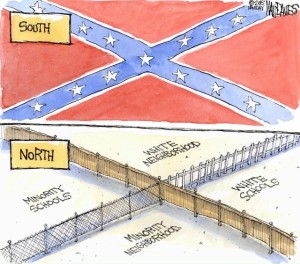 What Is Whiteness?, published by The New York Times on June 20, 2015
What Is Whiteness?, published by The New York Times on June 20, 2015
We Need To Talk About White Culture, published by The Daily Beast on June 19, 2015
Historian Says Don’t ‘Sanitize’ How Our Government Created Ghettos, a 35-minute interview with Historian Richard Rothstein, in which he links current racial inequities directly to past governmental policies, from NPR’s Fresh Air on May 14, 2015
White Fragility: Why It’s So Hard to Talk to White People About Racism, published by The Good Men Project on April 9, 2015
Only Part of the Story Is Being Told About the Police Shooting in Pasco, published by Time on March 3, 2015
Our Anti-Immigrant Racism Is Rooted in History, published by Common Dreams on February 17, 2015
Killing in Washington State Offers ‘Ferguson’ Moment for Hispanics, published by The New York Times on February 16, 2015
If Anyone Ever Questioned How White Privilege Manifested Itself in America This Is The Perfect Illustration, a five-minute video excerpt showing that, though race is a social construction with no scientific basis, governmental policy systematically gave it social and economic significance–all to the benefit of White Americans over the course of centuries–from Atlanta Blackstar on February 2, 2015
We Can’t ‘Get Over It’: 4 Ways Understanding Past Wrongs Can Create Better Indigenous Allies, published by Everyday Feminism on January 15, 2015
Why Ferguson Should Matter to Asian-Americans, published by Time on November 26, 2014
Joining Groups
Coalition of Anti-Racist Whites (CARW): a group of white people in the Seattle area working to undo institutional racism and white privilege through education and organizing in white communities and active support of anti-racist, people of color-led organizations. We support the self-determination of people of color, honor their leadership and are held accountable to people of color-led organizations.
European Dissent: A national network of groups with the goal to be a visible force in the creation of a multiracial network of people intent on building working relationships between the white community and the communities of color in the struggle for a just society.
Showing Up for Racial Justice (SURJ): A national network of groups and individuals organizing white people for racial justice.
Parenting Racially-Conscious Children
How silence can breed prejudice: A child development professor explains how and why to talk to kids about race, published by The Washington Post on July 6, 2015
It’s My Job to Raise Children Who Are Not Only Not Racist But Actively Anti-Racist, published by Huffington Post on July 1, 2015
The Hard Talk: White Parents Discussing Racism with White Children, published in Uprooting Criminology on June 20, 2015
.
Facing this country’s racist past and present will likely stir up a lot of feelings for many of us. Guilt may be among them. In dealing with guilt, I encourage you to read the words of Audre Lorde:
.
I cannot hide my anger to spare you guilt, nor hurt feelings, nor answering anger; for to do so insults and trivializes all our efforts. Guilt is not a response to anger; it is a response to one’s own actions or lack of action. If it leads to change then it can be useful, since it is then no longer guilt but the beginning of knowledge. Yet all too often, guilt is just another name for impotence, for defensiveness destructive of communication; it becomes a device to protect ignorance and the continuation of things the way they are, the ultimate protection for changelessness.
Instead of spending your energies on guilt, I encourage you to spend them seeking inspiration to act. There’s no shortage of inspiration. For a moment on June 30th, in the wake of terrorism in Charleston, you could even find it on a flagpole at the South Carolina State House.
Less than two weeks after Bree Newsome’s act of resistance, the governor of South Carolina signed a bill into law removing the Confederate Flag from the State House. Change is possible.
Stay connected for more ways to fight for social justice: Facebook, Tumblr, and Twitter. To learn more about the race curriculum controversy that led to the creation of this website, a controversy in which a public school district attempted to shut down a long-established study of race for seniors–all based on the misinformation of one White family–click here.

